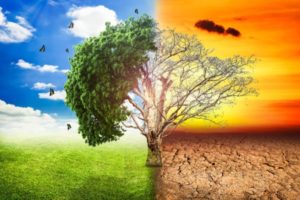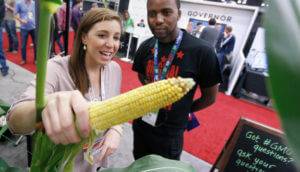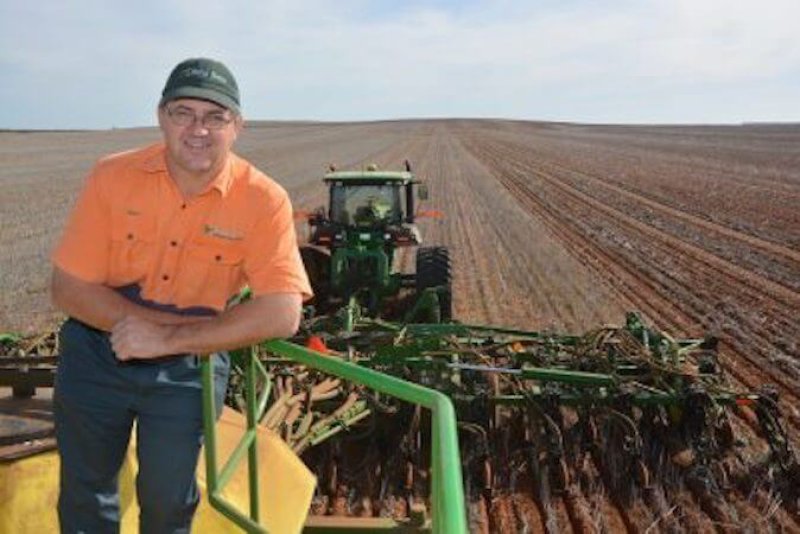Despite repeated assurances from the mainstream science community that our food supply is safe, many consumers remain highly skeptical of conventional agriculture, mostly due to misinformation about GMO crops and pesticides perpetuated on social media. Farmers recognize how controversial their profession has become and have attempted to dialogue with consumers and assuage their concerns.
On June 10, South Australian farmer John Gladigau joined the discussion, writing an open letter to the “non-agricultural community” and publishing it on his LinkedIn page. Gladigau acknowledged that he and his colleagues “don’t always get to have meaningful conversations with people outside of [our] own agricultural bubble,” and apologized for farmers who sometimes struggle to communicate with the general public.
While emphasizing the need for open and civil dialogue between farmers and consumers, Gladigau vigorously defended the widespread use of GMO crops and the herbicide glyphosate, tools, he argued, that help farmers sustainably grow enough food to feed everyone as the global climate changes. Gladigau also rebuffed the allegation that raising animals for food is “cruel,” noting that “farmers do everything they can to maintain the highest level of animal welfare ….”
The letter was shared thousands of times on social media and generated even more comments. In the spirit of advancing Gladigau’s effort to have “meaningful conversations” about food and farming, the GLP reproduces his letter in full below.
*******************
We need to talk.Firstly – apologies to you, because we are not always that good at doing this.
We all too easily get defensive, up in arms and occasionally confrontational when we are challenged, accused or criticized.
The thing is, we get a little sick of being called uneducated and ignorant when we have a lifetime of experience and many of us have qualifications which are similar to (or even exceed) our city cousins.
It hurts us when people tell us we are cruel to animals, don’t care for the future of the planet and are blasé about food safety whereas for the majority of us the opposite is true.
It frustrates us when people with little agricultural knowledge or experience lecture us on social media about the dangers of chemicals, our contribution to a changing climate, soil health, genetic modification and more when we have spent a lifetime working in, studying, experiencing and developing strategies to not only benefit our businesses, families and communities – but also those we produce for that we don’t even know.
But we don’t always react well to being criticized and challenged.
And when we do, we usually find solace in ‘preaching to the converted’ and sticking to our own rather than seeking to engage in meaningful conversation with those who may either not agree with us, or have a limited understanding of what we do and say. For this, we can only apologize.
There are many topics we should discuss, and these are but a few:
Climate Change
 There are few in rural areas who would argue against the suggestion that the climate is changing. The conjecture is not around this, it is really around whether this change is man-made or not – and if reductions to use of fossil fuels, livestock emissions or taxing industries will have any impact on this. What is generally missed in the debate is that agriculture has made huge strides in the past 20-30 years as it has looked to preserve the quality of our soil, minimize emissions and produce high quality food and fiber in an increasingly challenging climate.
There are few in rural areas who would argue against the suggestion that the climate is changing. The conjecture is not around this, it is really around whether this change is man-made or not – and if reductions to use of fossil fuels, livestock emissions or taxing industries will have any impact on this. What is generally missed in the debate is that agriculture has made huge strides in the past 20-30 years as it has looked to preserve the quality of our soil, minimize emissions and produce high quality food and fiber in an increasingly challenging climate.
Ironically (to some at least), glyphosate and GMOs are two of the tools which allow us to reduce our overall chemical use, preserve our fragile environment and reduce our fossil fuel use while farming in a sustainable manner. Unfortunately, we have not always done a good job of explaining this.
Roundup
Actually, we know it as the active ingredient glyphosate – and it is one of the most important tools we have in agriculture. Glyphosate is the reason the country is no longer a dust bowl. It allows us to retain our cropping residues and soil structure, and farm in an environmentally sustainable manner in a changing climate. There are many chemicals which we as farmers dislike, mainly because of chemical safety issues, and soil and crop residues – but glyphosate is not one of them. Let us be very clear – if we did not believe it was safe we would not use it. And we do not douse our crops with glyphosate – why would we? Sadly this is a lie perpetuated by social media. It is used in a limited and strategic manner, and as per the label.
We are repeatedly told to trust the science on climate change, so please also believe the science which categorically has deemed this product safe. While we are not all fans of Monsanto/Bayer – wanting to punish them (as per the US court cases) for greed and other sins helps no one and will ultimately only hurt agriculture and the environment if it is banned.
GMOs
The mere mention of the acronym seems to terrify many and it is unjustified. Firstly, despite what many think, there is no GMO wheat and barley in the world grown commercially. That means GMOs are not the cause of perceived higher incidences of gluten intolerance and other supposed grain caused diseases. They are not related. The only commercially grown genetically modified crops in Australia are GM canola and GM cotton, though other countries grow large areas of other GM crops including corn and soybeans.
Yes – if we are to increase our use of this technology it needs considerable community consultation and acceptance. It does however open the door to less use of potentially harmful chemicals, better nutrition and health benefits bred into crops, and much more environmentally and sustainable farming practices. However, we fully understand your concerns, many which are due to us not properly explaining what GMOs are, how they work and their benefits. We also have not always gone out of our way to listen to your concerns, fully educate ourselves on potential issues or properly articulate how they could benefit us as a planet as a whole. And if in the future they are scientifically proven to cause harm – then lets definitely steer away from them and find alternatives.
It does however open the door to less use of potentially harmful chemicals, better nutrition and health benefits bred into crops, and much more environmentally and sustainable farming practices. However, we fully understand your concerns, many which are due to us not properly explaining what GMOs are, how they work and their benefits. We also have not always gone out of our way to listen to your concerns, fully educate ourselves on potential issues or properly articulate how they could benefit us as a planet as a whole. And if in the future they are scientifically proven to cause harm – then lets definitely steer away from them and find alternatives.
Animal Welfare
As a general rule, farmers do everything they can to maintain the highest level of animal welfare on their properties, and are pained themselves when they see animals suffer. Yes, there are cases where farmers have caused acts of animal cruelty – and for that they should be made an example of and dealt with in accordance with the law and social standards. Most livestock producers focus heavily on ensuring their animals are happy and healthy. Why would they not?
Yes – they are ultimately killed and used for human consumption as food or fiber. We know some of you struggle with this, and we respect your right to not eat meat or use animal products. I’m sorry some of us occasionally fly off the handle if we find this difficult to understand, just as you may find our position unacceptable. Let’s try and respect each other’s position on this, even if we don’t agree.

I’d also love to talk to you about farm technology, droughts, careers in agriculture, live export and many other subjects, but we would be here all day. The main point of this letter is to say that agriculture is a professional, thriving industry – but we are not very good at talking about it.
We tend to live in our own little farming bubble and talk and whinge amongst ourselves. We get frustrated when we see something on “Sunrise” or “The Project” which affects us, and we go off half-cocked on FB or Twitter – mainly to people within our own industry.
And when we do get to talk to you we are usually being reactive or do a poor job of articulating our argument. We are sorry about that. From our perspective we also need to do a far better job of listening.
You rightly have questions and concerns about what we do, as the results of our efforts ends up feeding and clothing your families. How can you not be rattled by what you see on social media about GMOs and Roundup, especially if we don’t have meaningful conversations with you about what we do and why.
Of course, those of you who love animals will be furious (as we are) when you see examples of animal cruelty.
And yes, the whole idea of climate change is scary for us all.
Make no mistake, farmers are some of the most intelligent, educated, climatically aware, hardworking people on the planet – and focused on developing new, innovative and environmentally sustainable ways to continue to feed, clothe and fuel us all.
As farmers, we don’t always get to have meaningful conversations with people outside of [our] own agricultural bubble, so please feel free to pass this letter on to your friends both within and outside of ag.
It is only by listening to each other that we create understanding, empathy and stronger communities.
With respect,
John
John Gladigau is a third generation family farm at Alawoona in the Northern Mallee region of South Australia and an executive at Bulla Burra Operations. Follow him on Twitter @johngladigau
This article originally ran on LinkedIn as Open letter to the non agricultural community.































